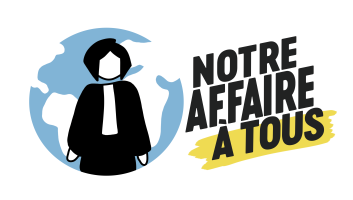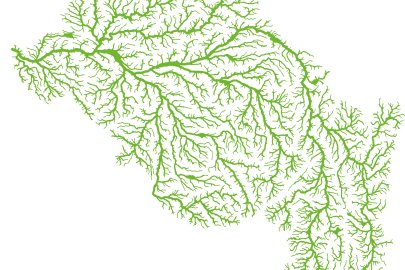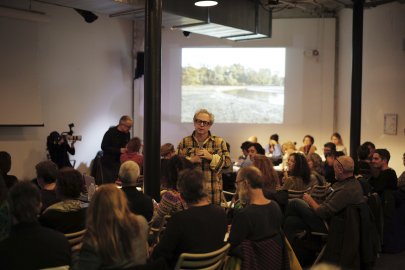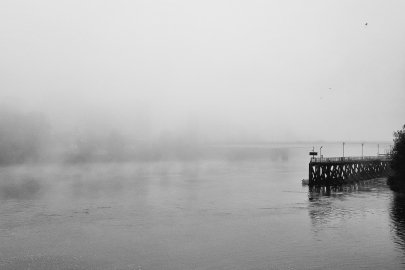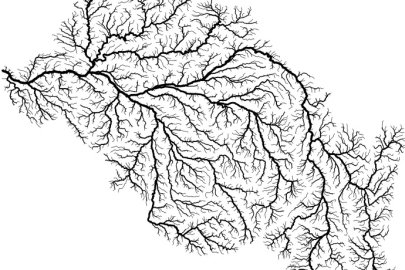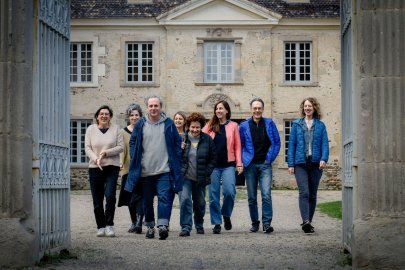The world is changing... Natural entities in every corner of the globe are transforming their status and gaining recognition for their rights.
Through human voices and the efforts of fragile collectives, lakes, forests, rivers, valleys, seas and animal and plant species are becoming ‘subjects’...
On the 16th of November 2024, in Nantes, a public hearing will happen. People will come and hear the stories of the Whanganui River in New Zealand, Lake Erié in the United States, the Atrato River in Colombia and the Mar Menor lagoon in Spain, all of which have fought to become ‘legal persons’ in recent years...
On 16 November, from 11am to 7pm, the project led by writer, researcher and artist Camille de Toledo will echo these metamorphoses. Stories of hope that herald a transformation of our societies and invite us to listen to the interests, values and needs of all entities on earth...
From 11am : The Assembly of the Voices of Nature...
... Voices from around the world, live, across time zones and languages, from New Zealand to Latin America... tell the stories of the Whanganui River, Lake Erie, the Atrato River... and more broadly tell the story of this cultural and legal turning point.
With Tisch O'Dell and Kai Huschke from the United States, Rory Smith from New Zealand, Estefanía Pavón from Latin America... and the many voices in Europe fighting to defend their ecosystems.
From 4pm : The case of the ‘Mar Menor’, the story of a lagoon...
The Mar Menor, a lagoon in southern Spain threatened by numerous industries, is the first ecosystem in Europe to have been granted ‘non-human legal personhood’ by a law passed in 2021. How did this happen? What is the history of this lagoon and the law that made it a ‘subject of law’? What can we learn from it?
With Teresa Vincente, professor of philosophy, the driving force behind the popular initiative for the Mar Menor, and Eduardo Salazar, lawyer, professor of public law and the human voice of the Mar Menor.
6.30pm : Final performance in the form of a meditation...
Following his practice of ‘transformative meditations’, Camille de Toledo will propose a narrative - snippets of thoughts, reflections, stories - to give shape to this world to come and propose a path towards an international of rivers and other elements of nature...
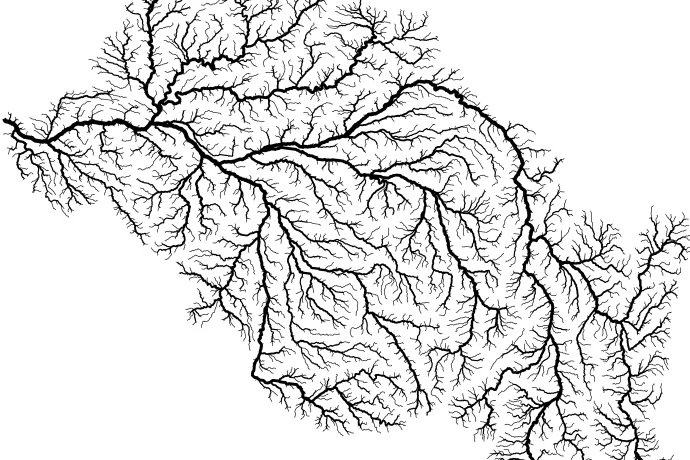
11am to 1pm
4pm to 7pm
Lieu Unique - Nantes
Towards an international network of rivers...
Free entry
With
Camille de Toledo A writer, artist and doctor of comparative literature, Camille de Toledo is the author of a number of essays mixing writing styles and genres, including autobiographical narratives and micro-fiction. His latest essay, Le fleuve qui voulait écrire (Ed. les liens qui libèrent, 2021), was shortlisted for the environmental book prize awarded by the Nouvel Observateur newspaper. He is currently a research associate at the Nantes Institute for advanced Studies.
Elizabeth Gallón Droste, artist and anthropologist. Her research focuses on territories and rivers that link up vast living networks. For her doctorate in anthropology at the Freie Universität Berlin, she wrote her thesis on the legal personality of the river Atrato. Since 2014, she has been part of various transdisciplinary learning processes and networks between the arts and sciences. She has produced several audiovisual and sound creations dealing with memory and socio-environmental conflicts, and collective actions for better living together. https://elizabethgallondroste.net/
Estefania Pabon is a young activist and founder of several groups working to defend the preservation and integrity of river basins and their inhabitants in Quito, Ecuador. More than 100 rivers and 16,000 people are affected. Her work lies at the crossroads of awareness-raising, environmental education and the legal battle for recognition of the rights of rivers and local communities.
Tish O'Dell, consulting director at the Community Environmental Legal Defense Fund. Based in Ohio, Tish has been training and supporting local communities across the country and internationally since 2012. She recently helped the people of Toledo pass the first Colonial Lands Act in the United States recognizing the rights of a specific ecosystem. Her advocacy work on Lake Erie and the Great Lakes has been featured in Ecologist, TruthOut and Inside Climate News, as well as the documentaries We the People 2.0 and Invisible Hand. Tish lives on the traditional lands of the Iroquois Confederacy or Haudenosaunee (the Five Nations).
Kai Huschke, Executive Director of the Community Environmental Legal Defense Fund (CELDF). CELDF has been a pioneer in the rights of nature movement, challenging the legitimacy of corporate rights at the expense of local autonomy. Kai is a seasoned community organiser and movement specialist with 16 years' experience. He is a national speaker for CELDF's School of Democracy and a board member of the Oregon Community Rights Network and the Washington Community Rights Network. He teaches, presents, and writes extensively on movement building, community rights, rights of nature, and the intersection of culture and law.
Rory Smith, member of Te Kōpuka, the group mandated by the Te Awa Tupua legislation recognising the legal personality of the Whanganui River in New Zealand to define a river strategy on its behalf. Rory has over 30 years' experience of running two tourism businesses wholly related to the river, including an accommodation provider and a tour operator, both of which rely heavily on close relationships with the Iwi (Māori) of the Whanganui River.
Eduardo Salazar, a lawyer specialising in environmental law since 2000 and assistant professor of administrative law at the University of Murcia (Spain) since 2010. A member of the Environmental Law Worldwide Alliance since 2001, he is also an expert on the Aarhus Convention on Access to Information, Public Participation in Decision-making and Access to Justice in Environmental Matters, signed on 25 June 1998 by thirty-nine States. He is also a member of the committee promoting the popular legislative initiative to recognise the legal personality and rights of the Mar Menor coastal lagoon in Murcia, Spain.
Marine Yzquierdo, environmental lawyer specialised in nature law and member of the Board of Directors of Notre Affaire à tous. She is co-responsible for the nature law commission at the Paris Bar and a member of the steering committee of the French Biodiversity Office. She is the author of several publications on the subject, including the book Les droits de la nature - Vers un nouveau paradigme de protection du vivant, Le Pommier, 2022.
Marie-Angèle Hermitte is an honorary research director at the CNRS and the EHESS. Her current areas of expertise cover the legal personality of elements of nature, biodiversity, indigenous peoples and communities of inhabitants. She is a pioneer of research in France on the rights of nature and has published numerous articles on the subject.
The partners
Pa

